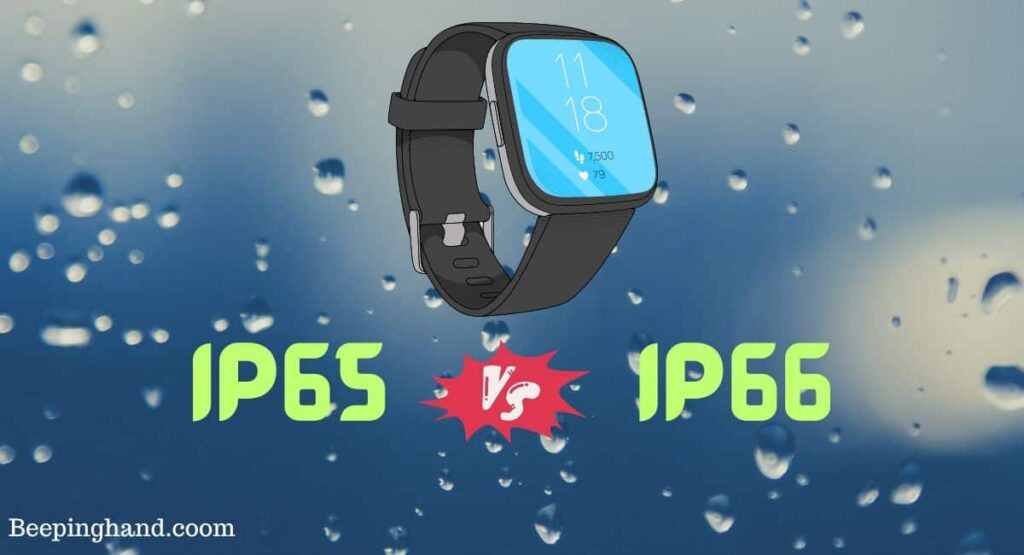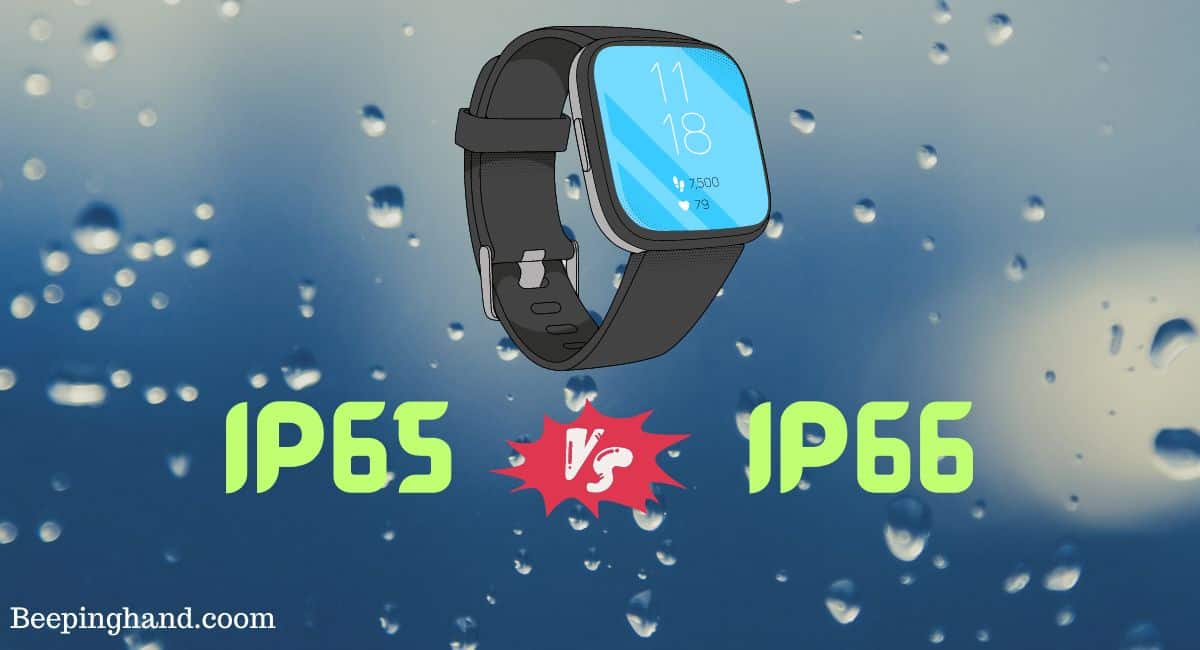When it comes to choosing electronic devices or equipment that can withstand harsh environmental conditions, understanding the IP (Ingress Protection) ratings is essential. IP ratings indicate the level of protection against water and dust intrusion. Two common ratings you may come across are IP65 and IP66.
Here, we’ll explore the differences between IP65 vs IP66, helping you make informed decisions when selecting products for your specific needs.
IP65 vs IP66: Which is Better?

What is IP65?
IP65 is an IP rating that signifies a high level of protection against dust and water. The “6” in IP65 indicates complete protection against dust particles, ensuring that no harmful dust can enter the enclosure. The “5” indicates protection against water jets from any direction, meaning the device is protected against low-pressure water spray or splashes.
What is IP66?
IP66 is another IP rating that offers a similar level of protection against dust and water but with some differences. Like IP65, the “6” in IP66 denotes complete dust protection. However, the “6” in IP66 represents a higher level of water protection. IP66 devices are not only protected against low-pressure water jets but also powerful water jets or heavy seas.
Water Resistance Comparison
In terms of water resistance, both IP65 and IP66 provide effective protection against water ingress. However, IP66 offers a higher level of water resistance, making it suitable for applications exposed to more intense water conditions. If your equipment will be subjected to powerful water jets or heavy rain, IP66-rated devices are recommended.
Dust Protection Comparison
Both IP65 and IP66 ratings ensure excellent protection against dust. They prevent any harmful dust particles from entering the device, ensuring its proper functioning. Whether you choose IP65 or IP66, you can trust that your equipment will be safeguarded against dust-related issues, making them suitable for various environments.
Also Read: Is Fitbit Watch Waterproof
Which Rating Should You Choose?
The choice between IP65 and IP66 depends on your specific needs and the environmental conditions in which your device will be used. If you anticipate exposure to powerful water jets or heavy seas, IP66-rated devices offer enhanced water protection.
On the other hand, if your device will primarily encounter low-pressure water sprays or splashes, IP65 can provide sufficient water resistance. Additionally, consider the level of dust protection required for your application.
Wrapping Up
This article is a comparison between IP65 vs IP66. IP65 and IP66 are both reputable IP ratings that provide reliable protection against water and dust intrusion. Understanding their differences can help you select the appropriate rating for your specific requirements. Whether you need devices for outdoor use, industrial settings, or other challenging environments, choosing the right IP rating ensures the longevity and performance of your equipment.
I hope this article was helpful to you. If you still have any questions then feel free to ask in the comment section. For more, Click Here to read.
FAQ’s IP65 vs IP66
What does IP65 mean?
IP65 is an Ingress Protection rating that signifies a high level of protection against dust and water. The “6” indicates complete dust protection, while the “5” represents protection against low-pressure water jets or splashes.
What does IP66 mean?
IP66 is an Ingress Protection rating that offers a similar level of dust protection as IP65, but with higher water resistance. The “6” indicates complete dust protection, while the “6” represents protection against powerful water jets or heavy seas.
Can IP65 devices withstand heavy rain?
IP65-rated devices are designed to resist low-pressure water jets or splashes and can handle light rain. However, they may not provide sufficient protection against heavy rain or powerful water streams.
Are IP66 devices completely waterproof?
While IP66 devices offer excellent water resistance against powerful water jets or heavy seas, they are not completely waterproof. It’s important to understand their limitations and ensure proper sealing in extreme water conditions.
Which rating is more suitable for outdoor use?
Both IP65 and IP66 ratings are suitable for outdoor use. IP66 provides enhanced water protection, making it ideal for environments with heavy rain or exposure to powerful water streams. IP65 is suitable for applications exposed to light rain or splashes.
Can IP65 and IP66 devices withstand dusty environments?
Yes, both IP65 and IP66 ratings ensure complete protection against dust particles. They are designed to prevent any harmful dust ingress, making them suitable for environments with dust exposure.
Can I upgrade an IP65 device to IP66?
No, IP ratings are determined by the design and construction of the device. Upgrading an IP65 device to IP66 would require significant modifications or a different device that meets the IP66 standard.
